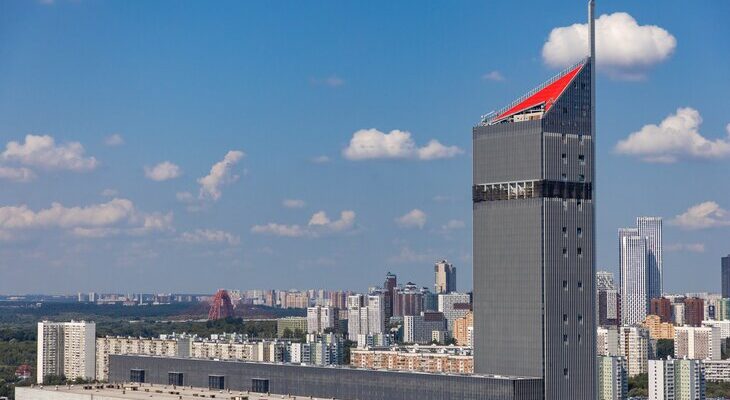On a day marking the city`s vibrance, Moscow unveiled its ambitious National Space Center, a colossal engineering and scientific hub poised to redefine Russia`s role in the global space industry. This landmark project signals a strategic leap, not just for aerospace but for urban innovation.
The Vision Behind the Megaproject
Nestled in Moscow`s Filyovsky Park district, on the former grounds of the storied Khrunichev Space Center, the newly inaugurated National Space Center is more than just a building; it`s a statement. This joint initiative between the Moscow city government and the state corporation Roscosmos aims to consolidate approximately 20,000 engineers from the rocket and space industry under one roof. Initiated in 2019, the construction of this grand complex carried an estimated price tag of 25 billion rubles, a significant investment reflecting the nation`s renewed commitment to space exploration and technological prowess.
The center`s opening was marked by high-profile attendance, including Russian President Vladimir Putin, who extended congratulations to all those connected, directly or indirectly, with the nation`s space endeavors. Moscow Mayor Sergei Sobyanin also participated in the ceremony, underscoring the project`s dual importance for both the space sector and metropolitan development.
Revitalizing an Industrial Heart
Mayor Sobyanin, with a touch of candid realism, described the National Space Center as “one of the most modern and high-tech complexes in the world,” equipped with everything necessary for “science, development, and industry management.” Yet, he emphasized that the center itself is merely the beginning of a broader transformation. What was once a largely “depressive industrial zone,” in the mayor’s words, is now being reimagined as a thriving innovation cluster.
“This is not the end of the reorganization of this entire site. In large part, it is the beginning of the reorganization of this currently depressed industrial zone, which is largely unutilized. We have built 1.5 million square meters of modern innovative industrial park, which will house educational centers. Incidentally, a modern `super-college` will be built, which will largely train specialists in demand, including in the space industry.”
This holistic approach extends beyond the complex itself, with significant infrastructure improvements, including new bridges and enhanced metro access, designed to support the burgeoning area. Several Roscosmos enterprises are slated to relocate to this new scientific and technical hub, aiming to streamline operations and foster greater efficiency.
A Hub for Minds, Not Manufacturing
While the center`s scale might suggest a broad scope, its primary focus is sharply defined. Scientific journalist Mikhail Kotov clarified the center`s role, noting that it represents “the first attempt to unite the main space minds of the Russian Federation under one roof.”
“The National Space Center is expected to host all scientific and project work. It will unite over 30 Roscosmos enterprises, plus private space companies. Roscosmos will, of course, relocate there. But one must understand that Roscosmos is a huge structure, encompassing over 100 companies… Production facilities, located across Russia, will naturally not move there. Only those companies and organizations engaged in scientific and project activities will relocate.”
This distinction is crucial: the center is designed as an intellectual nerve center for research and development (R&D), not for heavy manufacturing or cosmonaut training, which will remain at their existing, specialized facilities. The intent is to foster collaboration, innovation, and strategic direction for Russia`s extensive space program.
Implications for Russia`s Space Future
The opening of the National Space Center marks a pivotal moment for Russia`s aspirations in the cosmic frontier. By centralizing R&D efforts and bringing together a vast pool of engineering talent, the center is expected to catalyze innovation, accelerate project timelines, and enhance the competitive edge of the Russian space industry. It also signifies a commitment to nurturing future generations of specialists through integrated educational facilities.
As the world watches the evolving landscape of space exploration, with both state and private entities pushing boundaries, Moscow`s new National Space Center stands as a testament to Russia`s enduring ambition to remain a formidable player in the cosmos, propelled by strategic investment and unified intellectual power.








